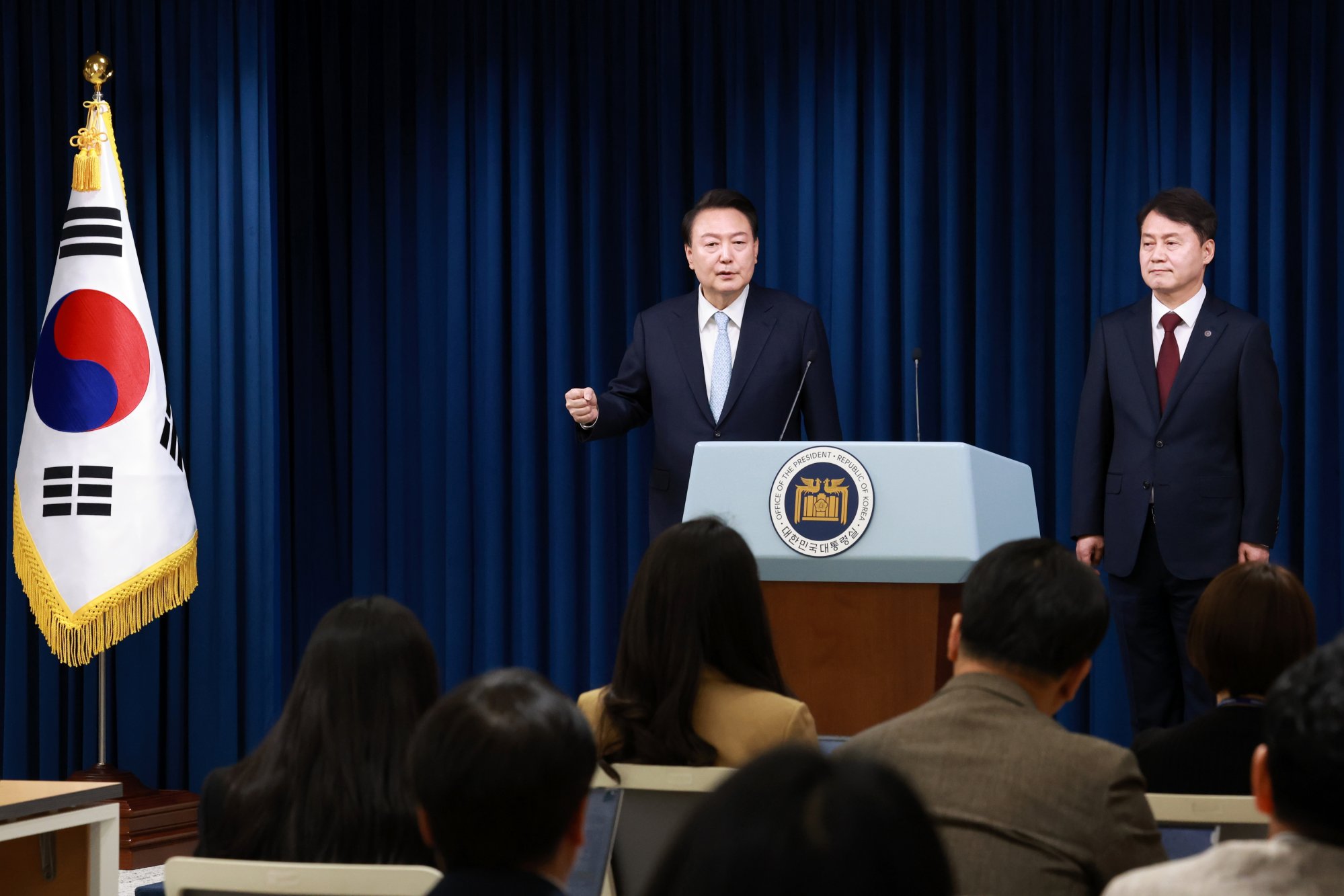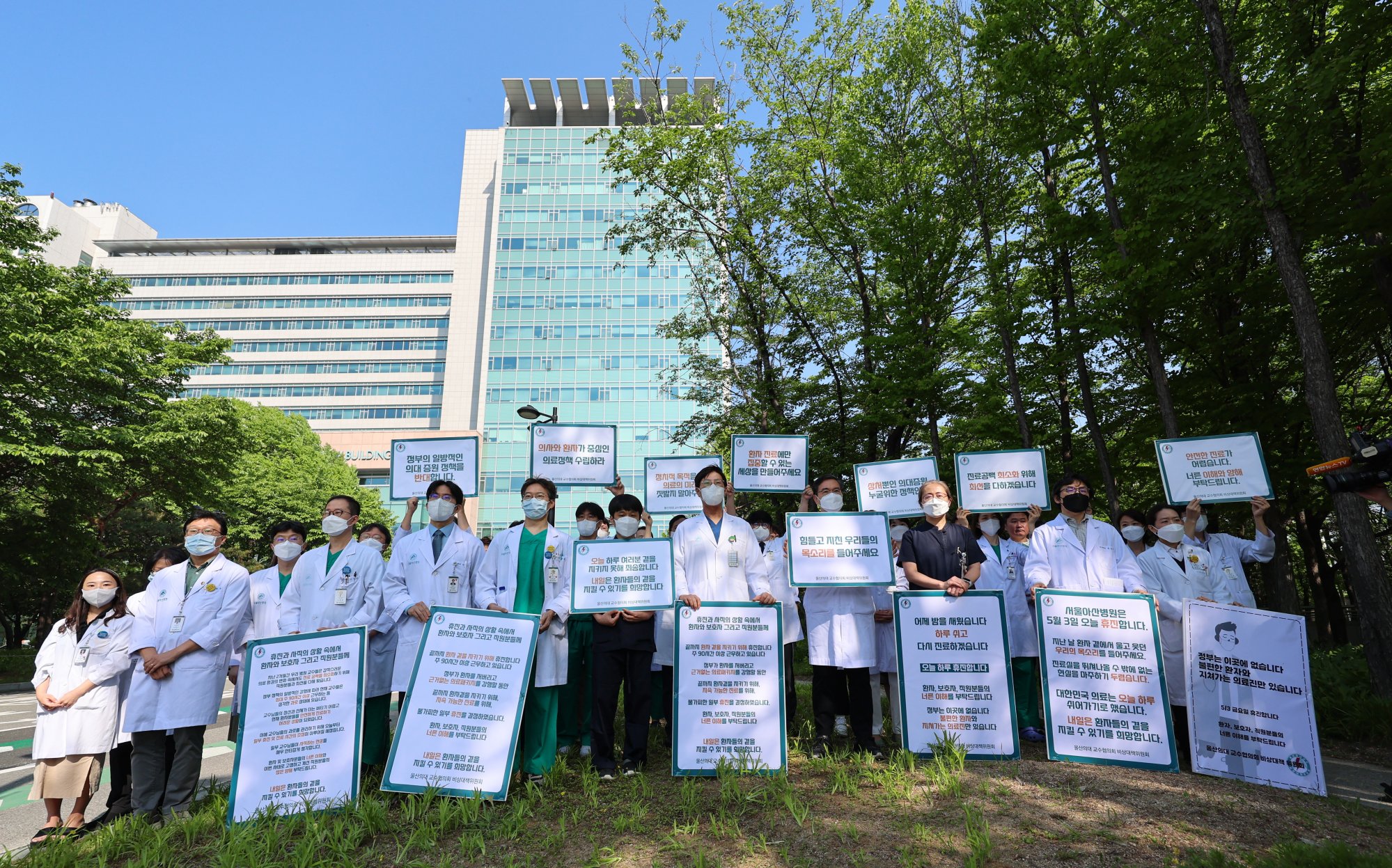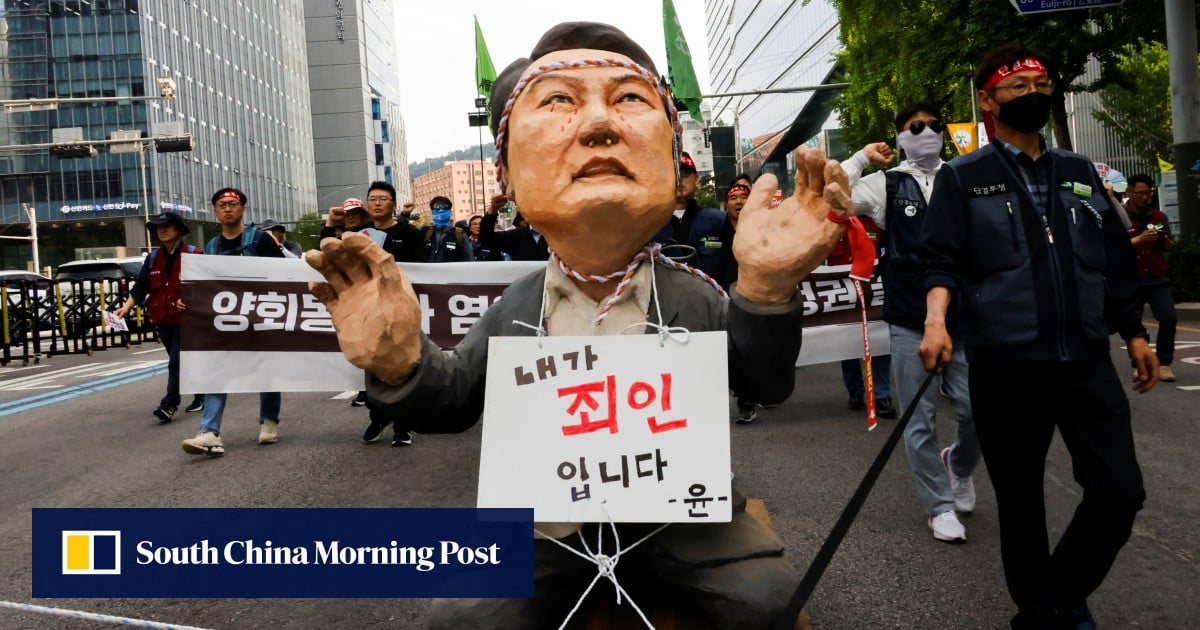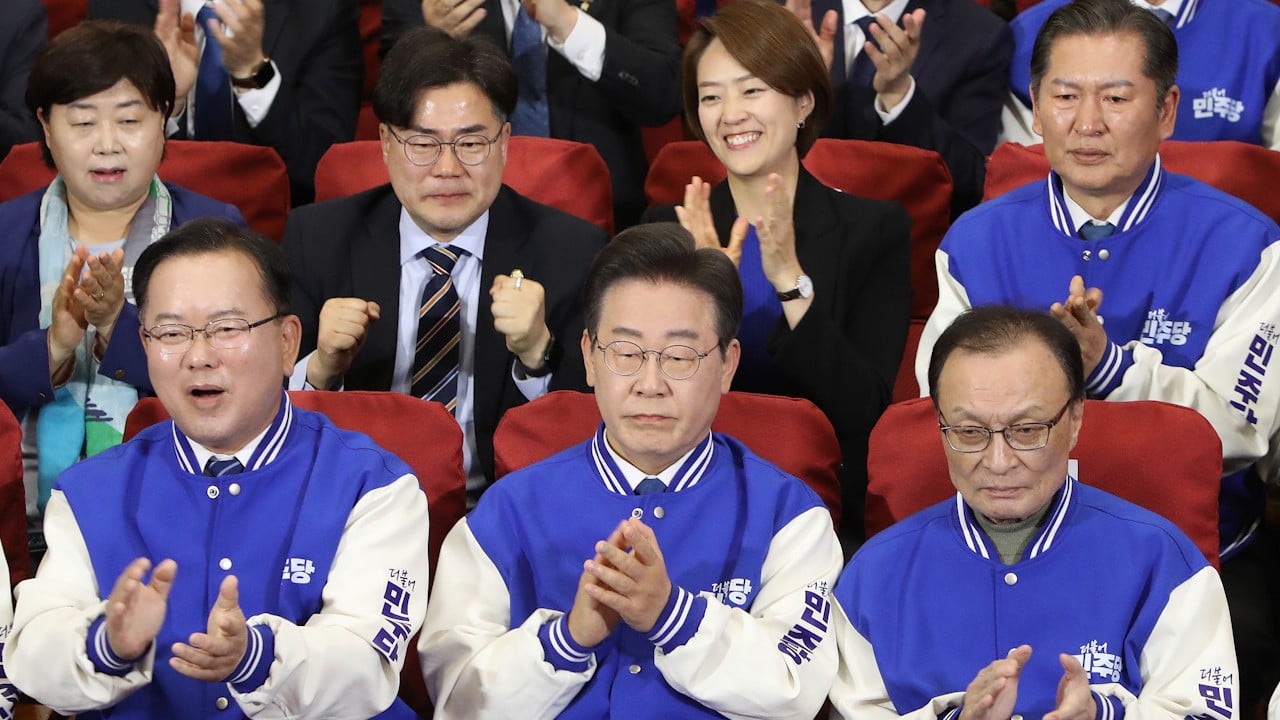Since his inaugural press conference in August 2022, marking his first 100 days in office, Yoon has largely shied away from such engagements – largely opting for prearranged interviews or public addresses without taking questions from journalists.

The liberal opposition Democratic Party of Korea won 175 seats – giving it a comfortable majority to ensure control of parliament for the next four years. Voter turnout was 67 per cent, the highest in over three decades.
The opposition, which already enjoyed a majority in parliament, forced a bill through last week that aims to shed light on the death of Lance Corporal Chae Soo-geun, 20, who drowned during a search for flood victims in July last year.
Members of the opposition and Yoon’s critics accused the presidential office of intervening in a military investigation into the death.
“If the allegations turn out to be true, the president could be subject to impeachment for abuse of power,” said Jhee Byong-kuen, a political-science professor at Chosun University in Gwangju.
Yoon is expected to veto the bill, citing the ongoing police investigation, and argue that the call for an investigation is politically motivated.
At Thursday’s media conference, Yoon will also face questions about his wife Kim Keon-hee, who has been accused of tax evasion and stock-price manipulation.
South Korean law prohibits the spouse of a public official from accepting gifts worth more than 1 million won (US$727) in a single instance, or that exceed a total value of 3 million won over one year. Failure to report such gifts in writing carries a maximum sentence of three years in prison and a fine of up to 30 million won under the anti-corruption law.
The president’s recent adoption of a more muted tone was seen as a positive by Professor Jhee, however, who saw it as an attempt by Yoon “to change his communication style to heed people’s voices expressed through the election”.

At Thursday’s press conference, Yoon is also expected to address the extended doctors’ strike that has forced hospitals to cancel essential treatments and surgeries, and crippled the healthcare sector.
The walkout by thousands of trainee doctors began in response to a plan to boost annual admissions to medical schools by 2,000 from next year.
“Through the press conference, Yoon should give a clear signal on how to end the doctors’ strike,” said Kim Hyung-joon, a political-science professor at Pai Chai University in Daejeon.
He also needs to change his perceived “arrogant and obstinate” style of governance to work effectively with the opposition-dominated parliament, Kim said.


